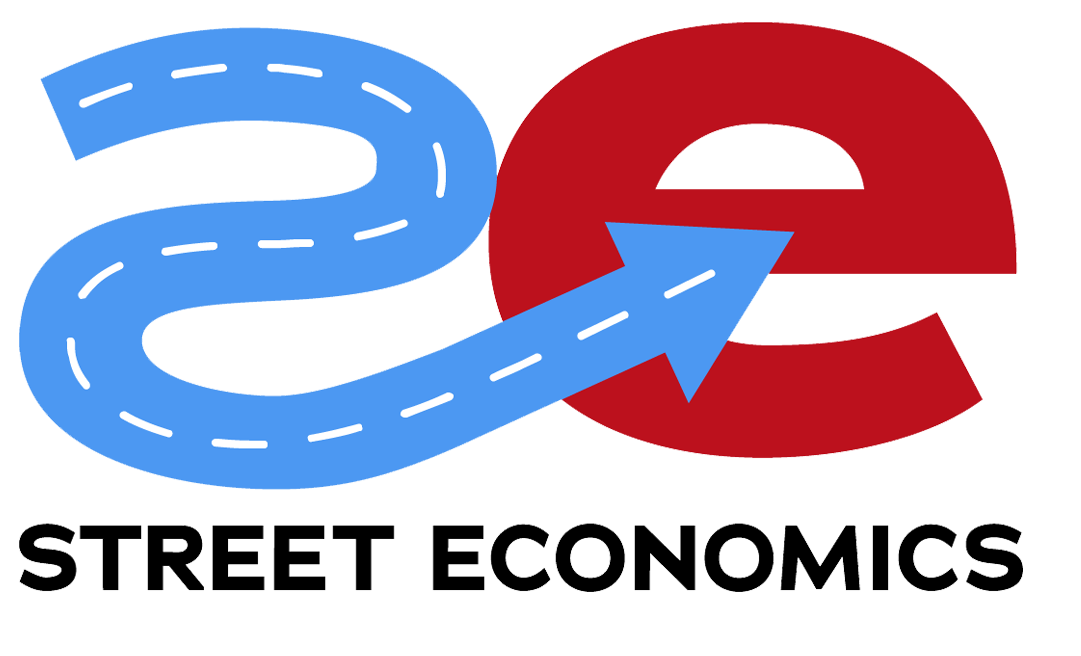Good morning, Armchair Economists
BusinessFlare Take
SUMMER CONSTRUCTION SEASON REALITY CHECK: CITIES ABOUT TO DISCOVER WHAT “SUPPLY CHAIN ISSUES” REALLY MEANS While mayors across America are cutting ribbons on imaginary infrastructure projects this week, the harsh reality of summer construction season is about to slap them harder than a concrete mixer in July heat. Every city that assumed materials would magically appear and workers would show up just because they allocated budget dollars is about to learn why seasoned economic developers always plan for Murphy’s Law. The smart money says at least three major municipal projects will hit the skids this week when contractors realize nobody actually secured the steel, concrete, or skilled labor they need. Watch for emergency city council meetings by Friday when reality crashes the ribbon-cutting party.
Street Economics Insight
JUNE RETAIL SALES NUMBERS WILL EXPOSE WHICH DOWNTOWNS ARE ACTUALLY WORKING Tuesday’s retail sales data release will separate the wheat from the chaff in downtown revitalization efforts nationwide. Cities that spent the last three years hosting “visioning sessions” and creating “placemaking initiatives” are about to get their report card from the only judge that matters: actual consumer spending. The numbers will be particularly brutal for communities that prioritized Instagram-worthy murals over realistic and pedestrian friendly parking solutions and street festivals over fundamental business infrastructure. Expect at least five downtown development authorities to schedule emergency strategy sessions when they realize their “authentic character” campaigns aren’t generating authentic revenue.
Drama Meter Reading
MIDSUMMER MUNICIPAL MELTDOWN SEASON OFFICIALLY OPENS THIS WEEK History suggests that late June marks the official start of Municipal Meltdown Season, when budget pressures, construction delays, and summer heat combine to expose every dysfunction in local government. This week’s forecast calls for at least two city managers to announce “retirement” (translation: get fired), one mayor to blame the previous administration for problems that started six months ago, and at least three city councils to hold closed-door sessions about “personnel matters” that everybody already knows about. The smart money is on a Sunbelt city with population under 50,000 to provide this week’s most spectacular governance failure. Stay tuned.
Book Drop
PLANNING CONFERENCE SEASON REVEALS WHY “UNLEASH YOUR UNFAIR ADVANTAGE” MATTERS MORE THAN EVER Summer conference season kicks into high gear this week with the American Planning Association’s annual gathering in Portland, where hundreds of planners will spend three days discussing “innovative approaches” while carefully avoiding any mention of why their last innovative approach didn’t work. The conference agenda reads like a greatest hits collection of buzzwords dismantled in “Unleash Your Unfair Advantage” – resilience, sustainability, equity, placemaking. Meanwhile, cities that actually focus on their genuine competitive advantages (location, infrastructure, workforce, regulatory efficiency) continue eating everyone else’s lunch. The contrast will be stark enough to make even planning consultants uncomfortable.
ECOSINT Signal
CHINA’S RARE EARTH EXPORT RESTRICTIONS WILL HIT US MANUFACTURING TOWNS BY THURSDAY Economic Intelligence sources indicate China’s latest rare earth export quotas will likely start affecting US manufacturing supply chains within 72 hours, creating immediate economic disruption in communities dependent on electronics, automotive, and renewable energy production. Small manufacturing towns in the Midwest that bet their economic development strategies on green energy components are about to discover they’re more vulnerable to Beijing’s economic warfare than they realized. Cities with diversified manufacturing bases will weather this better, while those that put all their eggs in the “clean energy” basket are about to learn some expensive lessons about supply chain reality. Economic developers should be monitoring this closely for early warning signs in their local manufacturing base.
Red River Flavor
FDA FINALLY ADMITS WHAT GOODNIGHT’S RED RIVER HAS BEEN SAYING: ULTRA-PROCESSED FOODS ARE POISON The FDA’s long-awaited review of ultra-processed food additives hits Wednesday, and sources suggest they’ll finally acknowledge what companies like Red River Spices have been screaming about for years: the industrial food complex has been systematically poisoning Americans with chemical cocktails disguised as “natural flavors.” Expect the usual parade of food industry lobbyists to explain why emulsifiers, preservatives, and artificial colors are “essential for food safety,” while completely ignoring the epidemic of metabolic dysfunction destroying communities nationwide. The economic impact on healthcare costs alone should wake up city officials who’ve been asleep at the public health wheel. Real food companies that use actual ingredients instead of laboratory chemicals are about to look very smart.
The Music Cities
LIVE NATION’S SUMMER VENUE STRATEGY EXPOSES WHICH CITIES UNDERSTAND ENTERTAINMENT ECONOMICS Live Nation’s summer touring schedule reveals a fascinating pattern: mid-size cities with sensible regulations and adequate infrastructure are getting more major acts than traditional “music cities” choking on their own bureaucracy. Cities that streamlined their permitting processes and invested in venue infrastructure are reaping the rewards, while places that spent years arguing about noise ordinances and parking requirements are watching tour buses drive right past them to more business-friendly destinations. The economic multiplier effects are becoming impossible to ignore – concert-goers don’t just buy tickets, they buy dinner, hotel rooms, gas, and souvenirs. Smart economic developers are taking notes.
Space Economy Signal
JUNE LAUNCH SCHEDULE CONFIRMS WHICH STATES ARE WINNING THE NEW SPACE RACE This week’s packed launch schedule from Cape Canaveral, Vandenberg, and private facilities confirms that the space economy is creating genuine economic opportunities for communities smart enough to position themselves strategically. Florida obviously leads, but Texas, California, and Colorado are building serious aerospace manufacturing ecosystems while other states are still arguing about tax incentives. The secret sauce isn’t throwing money at rocket companies – it’s building the workforce pipeline, regulatory framework, and infrastructure that space companies actually need. Cities near aerospace suppliers are seeing manufacturing job growth that traditional economic development approaches can’t match.
Purple Cow of the Day
SOMEWHERE THIS WEEK, A CITY WILL ACCIDENTALLY DISCOVER WHAT ACTUALLY WORKS Statistical probability suggests that sometime this week, at least one American city will stumble upon an economic development strategy that actually generates measurable results, probably by complete accident. Maybe they’ll approve a modest zoning change that unleashes $50 million in private investment, or eliminate a ridiculous permitting requirement that suddenly makes their downtown viable for small business. Whatever it is, they’ll probably attribute their success to “visionary leadership” and “community engagement” instead of recognizing they just stopped doing something stupid. The real tragedy is they’ll likely spend the next two years trying to complicate their simple solution with additional bureaucracy. But hey, at least it’ll give the rest of us something interesting to write about.

About Street Economics Daily Street Economics Daily cuts through noise, jargon, and bureaucracy to deliver sharp, actionable insights for civic and economic development professionals. Blunt, irreverent, and grounded firmly in reality, it’s essential daily reading for city leaders who refuse to settle for outdated strategies. To learn more visit streeteconomics.ai



No responses yet